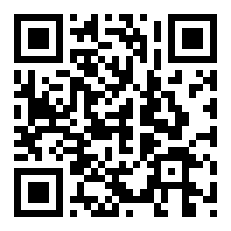About Us
Brett Smith, MFT, CCHT
I look forward to helping people find their way out of living situations that are painful, or inappropriate for them. The focus of my practice is on codependency, and it's consequences.


Co-dependency
Co-dependency is a learned behavior that can be passed down from one generation to another. It is an emotional and behavioral condition that affects an individual’s ability to have a healthy, mutually satisfying relationship. It is also known as “relationship addiction” because people with codependency often form or maintain relationships that are one-sided, emotionally destructive and/or abusive. The disorder was first identified about ten years ago as the result of years of studying interpersonal relationships in families of alcoholics. Co-dependent behavior is learned by watching and imitating other family members who display this type of behavior.
Who Does Co-dependency Affect?
Co-dependency often affects a spouse, a parent, sibling, friend, or co-worker of a person afflicted with alcohol or drug dependence. Originally, co-dependent was a term used to describe partners in chemical dependency, persons living with, or in a relationship with an addicted person. Similar patterns have been seen in people in relationships with chronically or mentally ill individuals. Today, however, the term has broadened to describe any co-dependent person from any dysfunctional family.
Characteristics of Co-dependent People Are:
-
An exaggerated sense of responsibility for the actions of others
-
A tendency to confuse love and pity, with the tendency to “love” people they can pity and rescue
-
A tendency to do more than their share, all of the time
-
A tendency to become hurt when people don’t recognize their efforts
-
An unhealthy dependence on relationships. The co-dependent will do anything to hold on to a relationship; to avoid the feeling of abandonment
-
An extreme need for approval and recognition
-
A sense of guilt when asserting themselves
-
A compelling need to control others
-
Lack of trust in self and/or others
-
Fear of being abandoned or alone
-
Difficulty identifying feelings
-
Rigidity/difficulty adjusting to change
-
Problems with intimacy/boundaries
-
Chronic anger
-
Lying/dishonesty
-
Poor communications
-
Difficulty making decisions
Questionnaire To Identify Signs Of Co-dependency
This condition appears to run in different degrees, whereby the intensity of symptoms are on a spectrum of severity, as opposed to an all or nothing scale. Please note that only a qualified professional can make a diagnosis of co-dependency; not everyone experiencing these symptoms suffers from co-dependency.
1. Do you keep quiet to avoid arguments?
2. Are you always worried about others’ opinions of you?
3. Have you ever lived with someone with an alcohol or drug problem?
4. Have you ever lived with someone who hits or belittles you?
5. Are the opinions of others more important than your own?
6. Do you have difficulty adjusting to changes at work or home?
7. Do you feel rejected when significant others spend time with friends?
8. Do you doubt your ability to be who you want to be?
9. Are you uncomfortable expressing your true feelings to others?
10. Have you ever felt inadequate?
11. Do you feel like a “bad person” when you make a mistake?
12. Do you have difficulty taking compliments or gifts?
13. Do you feel humiliation when your child or spouse makes a mistake?
14. Do you think people in your life would go downhill without your constant efforts?
15. Do you frequently wish someone could help you get things done?
16. Do you have difficulty talking to people in authority, such as the police or your boss?
17. Are you confused about who you are or where you are going with your life?
18. Do you have trouble saying “no” when asked for help?
19. Do you have trouble asking for help?
20. Do you have so many things going at once that you can’t do justice to any of them?
If you identify with several of these symptoms; are dissatisfied with yourself or your relationships; you should consider seeking professional help. Arrange for a diagnostic evaluation with a licensed physician or psychologist experienced in treating co-dependency.
How is Co-dependency Treated?
Because co-dependency is usually rooted in a person’s childhood, treatment often involves exploration into early childhood issues and their relationship to current destructive behavior patterns. Treatment includes education, experiential groups, and individual and group therapy through which co-dependents rediscover themselves and identify self-defeating behavior patterns. Treatment also focuses on helping patients getting in touch with feelings that have been buried during childhood and on reconstructing family dynamics. The goal is to allow them to experience their full range of feelings again.
CALL TODAY!
for a Free Consultation!
530-903-7738
